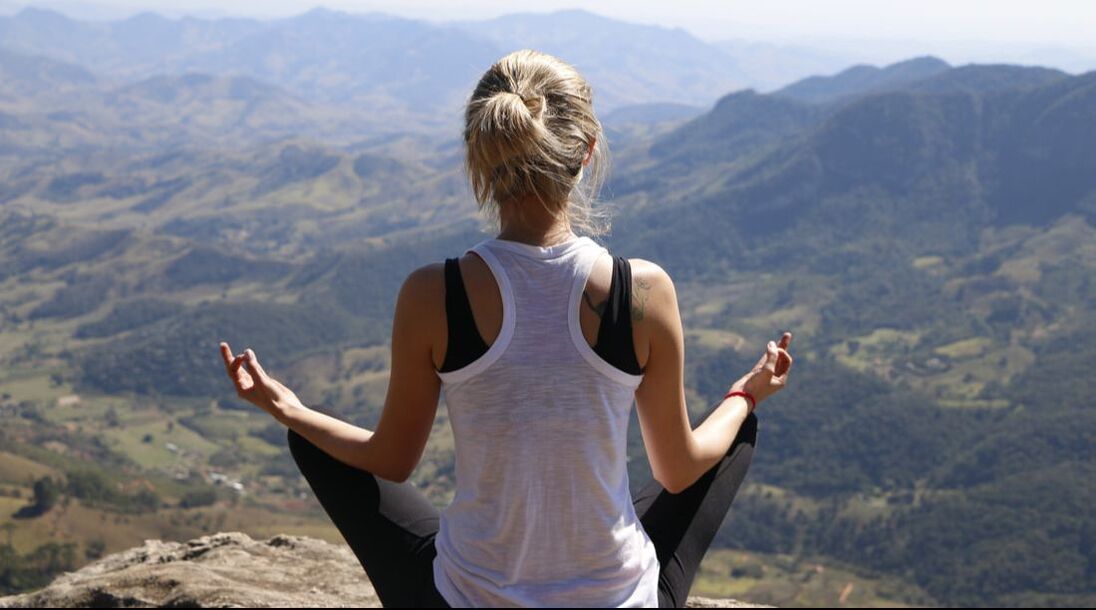Coronavirus & COVID-19 Mental Health Resources
Learn some practical ways to cope with the Coronavirus pandemic by tapping into the powerful part of yourself!
7 Ways to Manage Anxiety During COVID

There is no doubt COVID-19 has significantly impacted all of our lives. It has brought challenges we never thought we would face and has forced us to find new ways to do our jobs, sustain our relationships, and function in our day-to-day lives. There is no doubt this pandemic has taken an emotional toll on all of us, particularly those living with anxiety. And while we are still in the midst of uncertain times, there are ways we can better manage our anxiety and restore a sense of well-being.
Keep a Routine
Establishing a consistent routine that involves regular meals, exercise, and sleep is critical to regulating our moods and managing anxiety. But the pandemic interrupted many of our previously established routines. And if you have yet to create new one, now is the time. Having a new routine helps us remember that life is continuing on. Daily routines can also support us in feeling more grounded, purposeful, and resilient.
Stay Connected
Maintaining healthy relationships with loved ones and friends is always essential to mental health and well-being. Unfortunately, the pandemic has made it difficult to connect with others in some ways in which we were previously accustomed. This has left many of us feeling lonely or isolated. But we can still pick up the phone, send a text, or get on a video call. The more we can connect with others, whether to share worries and fears, or just have a good laugh, can make a huge difference.
Focus on the Here and Now
The virus has brought a lot of uncertainty, and uncertainty triggers anxiety. It is easy to get caught in a cycle of anxious thoughts – all those “what-ifs” about what the future might bring. Unfortunately, this just compounds the anxiety. Concentrating on the present moment by focusing on what is happening right now, rather what might happen in the future is essential to managing anxiety. Of course, this is easier said than done. But our brains are trainable, and the more we can notice when our thoughts wander from the present moment and bring them back to the present moment, the easier it becomes. Some ways to come back to the present moment include:
Travel Virtually
COVID-19 has made our worlds smaller. Seeing friends, going to our favorite restaurants, or visiting family are all things that look very different these days. Working from home, which perhaps felt novel in the beginning, just feels mundane now. And any sort of travel, whether for business or pleasure, has certainly come to a halt. The monotony of the days can leave us feeling restless, anxious, and unmotivated. Thus, it is vital to find ways to “shake things up”. Instead of scrolling endlessly through social media feeds or mindlessly playing that phone game for hours, try using technology in a different way - by traveling virtually. After the pandemic hit, countless museums, national parks, and zoos created virtual tours for people to take from the safety of their homes. These virtual tours can help break up the monotony of the day and keep our minds stimulated, even if we are stuck on the couch. Check out this list of virtual tours, or do a quick internet search to find what might interest you.
Use Gratitude
During challenging times, it can be tough to notice the good stuff. However, finding ways to be grateful can really boost our ability to cope. Practicing gratitude increases the “feel-good” hormones in the brain – serotonin and dopamine, and has been shown to improve immunity and an overall sense of wellbeing. There are many ways to bring more gratitude into our lives:
Practice News Distancing
For months, every newspaper, social media platform, and tv station has been flooded with coverage about the pandemic. While staying up-to-date and informed is important, there is such a thing as too much information. Being inundated with any information, especially that which is stressful in nature, can be overwhelming. So, just as we are practicing social distancing, we also need to be practicing “news distancing”. Try designating certain times throughout the day to “unplug” from news and social media. Or try “unplugging” altogether for a day or two (you could designate a trusted friend or loved one to share news updates as necessary).
Seek Support
If you’re feeling overwhelmed by your anxiety, remember, it is OK to ask for help. Mental health support is more accessible than ever, with many therapists offering telehealth sessions remotely, either via phone or videoconference.
Keep a Routine
Establishing a consistent routine that involves regular meals, exercise, and sleep is critical to regulating our moods and managing anxiety. But the pandemic interrupted many of our previously established routines. And if you have yet to create new one, now is the time. Having a new routine helps us remember that life is continuing on. Daily routines can also support us in feeling more grounded, purposeful, and resilient.
Stay Connected
Maintaining healthy relationships with loved ones and friends is always essential to mental health and well-being. Unfortunately, the pandemic has made it difficult to connect with others in some ways in which we were previously accustomed. This has left many of us feeling lonely or isolated. But we can still pick up the phone, send a text, or get on a video call. The more we can connect with others, whether to share worries and fears, or just have a good laugh, can make a huge difference.
Focus on the Here and Now
The virus has brought a lot of uncertainty, and uncertainty triggers anxiety. It is easy to get caught in a cycle of anxious thoughts – all those “what-ifs” about what the future might bring. Unfortunately, this just compounds the anxiety. Concentrating on the present moment by focusing on what is happening right now, rather what might happen in the future is essential to managing anxiety. Of course, this is easier said than done. But our brains are trainable, and the more we can notice when our thoughts wander from the present moment and bring them back to the present moment, the easier it becomes. Some ways to come back to the present moment include:
- Focusing on our breath
- Naming what we see around us (i.e. – a chair, a computer, a dog, etc.)
- Using our sense of touch (i.e. – feeling the carpet below our feet, touching the fabric of the chair we are sitting on, etc.)
Travel Virtually
COVID-19 has made our worlds smaller. Seeing friends, going to our favorite restaurants, or visiting family are all things that look very different these days. Working from home, which perhaps felt novel in the beginning, just feels mundane now. And any sort of travel, whether for business or pleasure, has certainly come to a halt. The monotony of the days can leave us feeling restless, anxious, and unmotivated. Thus, it is vital to find ways to “shake things up”. Instead of scrolling endlessly through social media feeds or mindlessly playing that phone game for hours, try using technology in a different way - by traveling virtually. After the pandemic hit, countless museums, national parks, and zoos created virtual tours for people to take from the safety of their homes. These virtual tours can help break up the monotony of the day and keep our minds stimulated, even if we are stuck on the couch. Check out this list of virtual tours, or do a quick internet search to find what might interest you.
Use Gratitude
During challenging times, it can be tough to notice the good stuff. However, finding ways to be grateful can really boost our ability to cope. Practicing gratitude increases the “feel-good” hormones in the brain – serotonin and dopamine, and has been shown to improve immunity and an overall sense of wellbeing. There are many ways to bring more gratitude into our lives:
- Keep a gratitude journal
- Write a gratitude letter
- Express appreciation to loved ones
- Create a gratitude collage
Practice News Distancing
For months, every newspaper, social media platform, and tv station has been flooded with coverage about the pandemic. While staying up-to-date and informed is important, there is such a thing as too much information. Being inundated with any information, especially that which is stressful in nature, can be overwhelming. So, just as we are practicing social distancing, we also need to be practicing “news distancing”. Try designating certain times throughout the day to “unplug” from news and social media. Or try “unplugging” altogether for a day or two (you could designate a trusted friend or loved one to share news updates as necessary).
Seek Support
If you’re feeling overwhelmed by your anxiety, remember, it is OK to ask for help. Mental health support is more accessible than ever, with many therapists offering telehealth sessions remotely, either via phone or videoconference.
Helpful Links
Additional Resources
- Community Crisis Line: 520-622-6000 or 866-495-6738
- National Suicide Prevention Line: 1-800-273-8255
- HOPE Inc. "warm line": 520-770-9909 or 844-733-9912
- National Alliance on Mental Illness Southern Arizona: 520-622-5582





